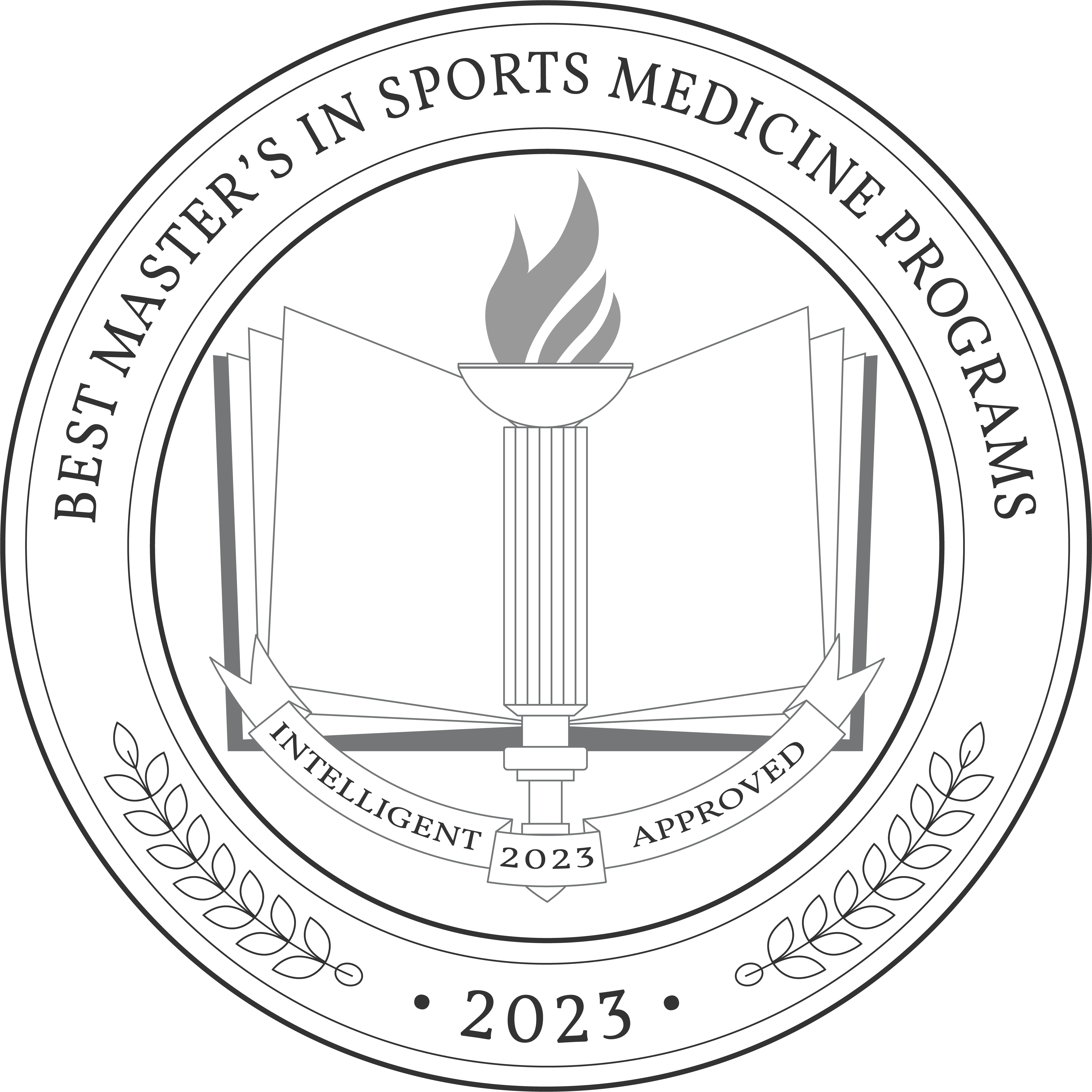Why This Matters
-
OCCUPATIONAL THERAPISTS EARN $84,950 PER YEAR
With a median hourly wage of $40.84 per hour, occupational therapists earn more than two times that of the average U.S. worker.
-
DEMAND FOR OCCUPATIONAL THERAPISTS IS EXPECTED TO INCREASE BY 16%
The need for skilled professionals to help injured athletes and active individuals is estimated to grow at a rate significantly higher than those of other occupations.
-
47,000 MORE PHYSICAL THERAPISTS ARE NEEDED BY 2029
It’s estimated there will be 305,200 physical therapists in the U.S. by 2029. The demand is expected to increase by 18%.
Our Research
The research on our list covers graduate programs in sports medicine that prepare students for careers in kinesiology, athletic training, and exercise science. Degrees offered include Master of Science in Kinesiology, Master of Arts in Sports Coaching, Master of Science in Kinesiology & Rehabilitation Science, Master of Sports Science, and Master in Exercise Science and Wellness. All graduate programs are delivered online.
National and regional accreditation organizations recognize master’s programs in sports medicine that uphold a high academic standard. Schools on our list are accredited by the Higher Learning Commission (HLC), Association for Advancing Quality in Educator Preparation (AAQEP), Southern Association of Colleges and Schools Commission on Colleges (SACSCOC), Commission on Accreditation of Athletic Training Education (CAATE), and WASC Senior College and University Commission (WSCUC).
We evaluated each program on the basis of flexibility, faculty, course strength, cost, and reputation. Then we calculated the Intelligent Score for each program on a scale from 0 to 100. For a more extensive explanation, check out Our Ranking Methodology.
- 64 hours to write this article
- 191 universities and colleges we assessed
- 225 education programs we compared
The Top 50 Master’s in Sports Medicine Degree Programs

Discover More Options
What You Should Know About This Degree
When choosing a sports medicine career, you should decide which job occupation you’d like to pursue. Sports medicine includes many professions, including athletic trainers, physiotherapists, nutritionists, and sports medicine doctors. Certain job roles, such as sports physicians, require a doctorate degree in medicine.
You should also consider pursuing a master’s degree in kinesiology. Kinesiology focuses on how physical activity can affect the health and well being of society as a whole. On the other hand, sports medicine specializes in treating and preventing injuries that are the result of sports-related activities. Determine whether you would like to specialize in working with athletes or would like to apply your knowledge of health and human anatomy to the general public when deciding on a graduate program.
Certifications can help graduates gain new skills associated with sports medicine while also gaining a competitive edge over other job candidates. Credentials help demonstrate your expertise to potential employers. You should consider obtaining additional certifications approved by the American College of Sports Medicine (ACSM), such as Physical Activity in Public Health Specialist (PAPHS), Exercise Physiologist (ACSM-EP), and Exercise Is Medicine (EIM).
As an aging population remains active later in life, the demand for skilled sports medicine professionals is expected to grow at a rate much higher than the national average.
What’s Next?
Ask yourself these questions when researching graduate programs in sports medicine:
- Am I eligible for this program? Students from all educational backgrounds who hold a bachelor’s degree or equivalent can pursue a master’s degree in sports medicine. Some programs may have additional requirements such as a minimum GPA, a Graduate Record Examination (GRE) score, and letters of recommendation.
- How long does it take to complete this online degree? Most graduate programs in sports medicine take between 18 months and two years to complete. The programs on this list require 30 to 48 credits to graduate.
Application deadlines and academic prerequisites are different for each program. Visit each school’s website to find more information about requirements.
Consider how you’ll cover the financial costs of your graduate degree. You might be eligible for scholarships, grants, or federal student aid. Research funding opportunities, and make sure to turn in all applications on time.